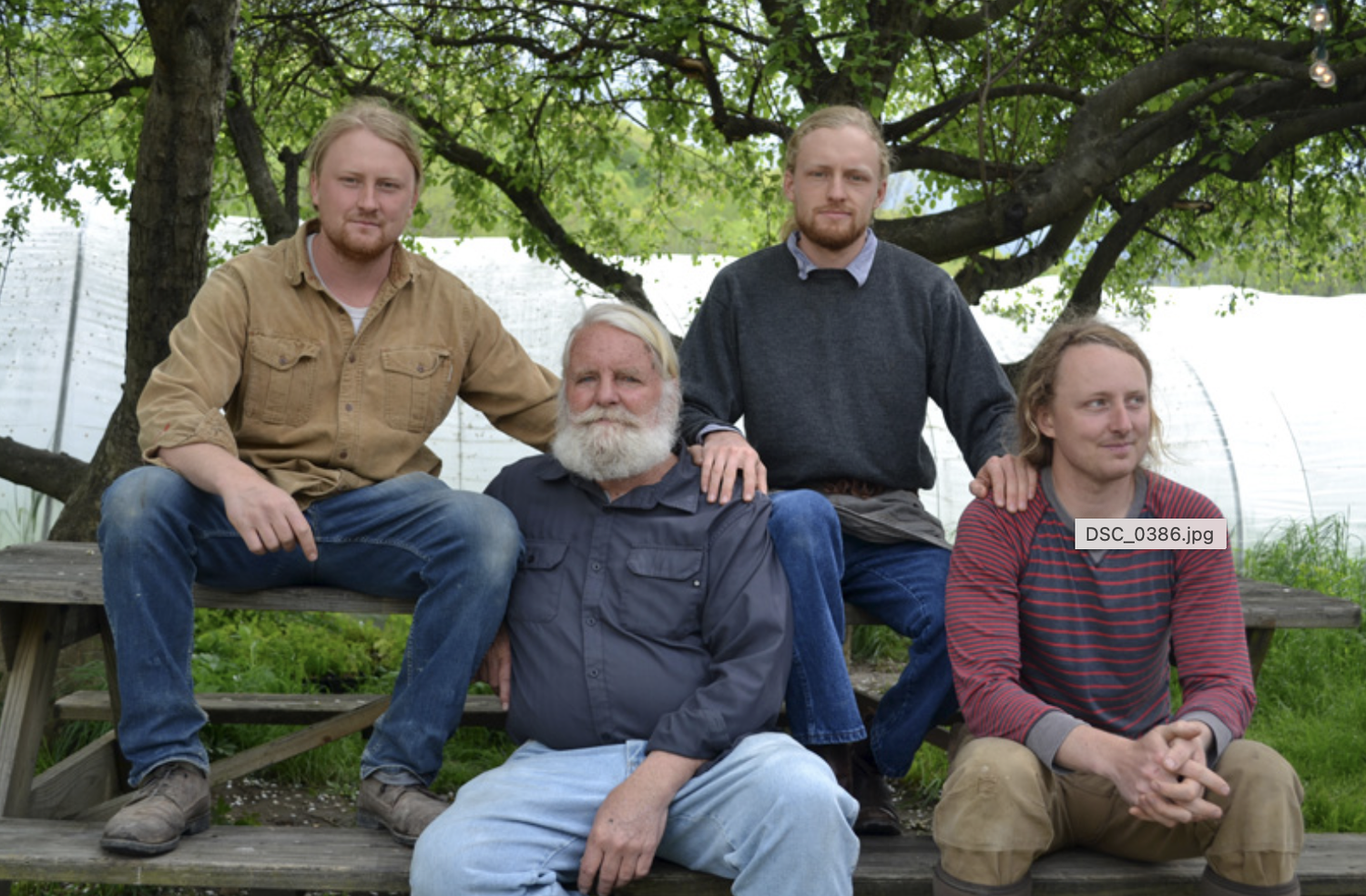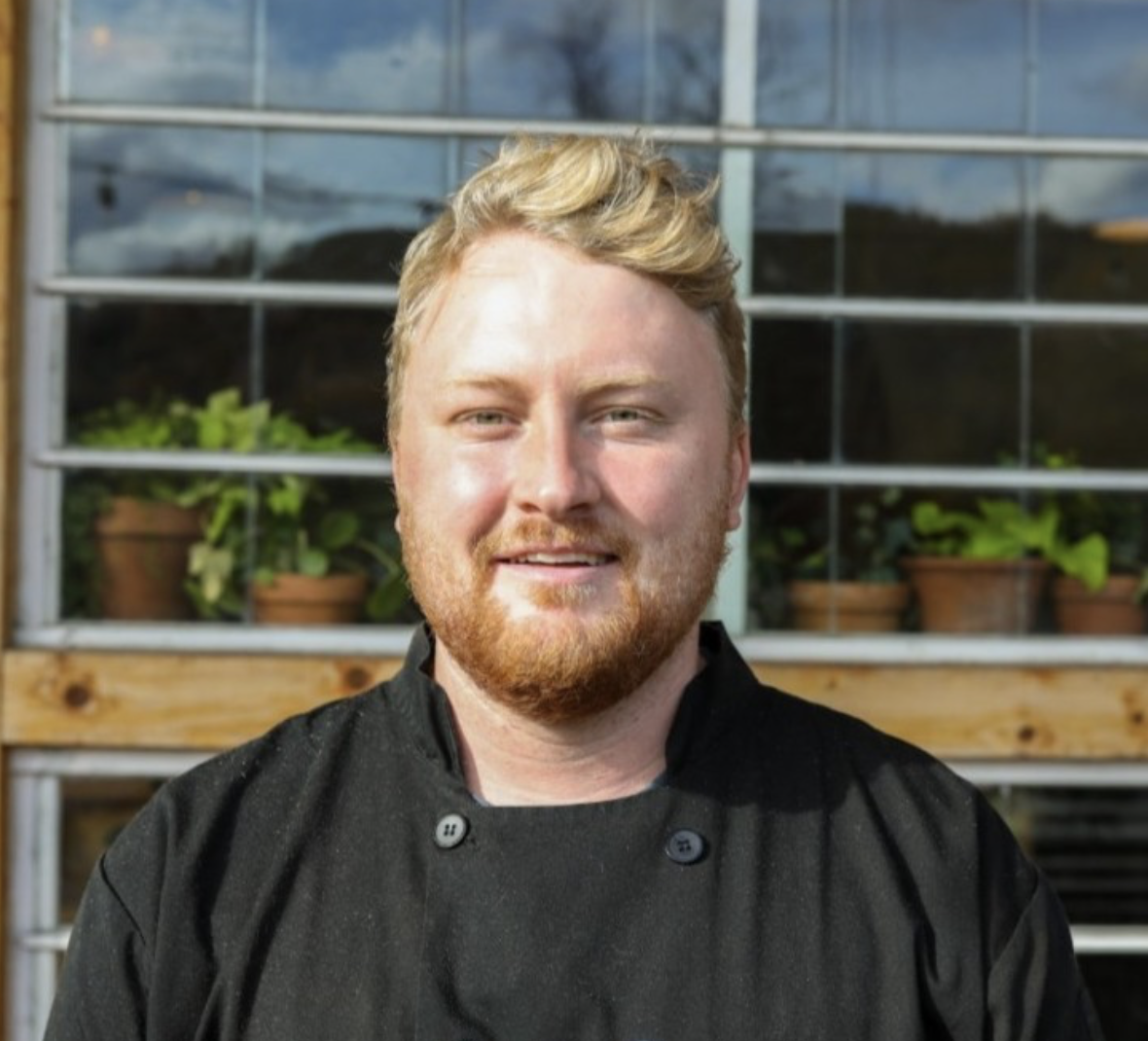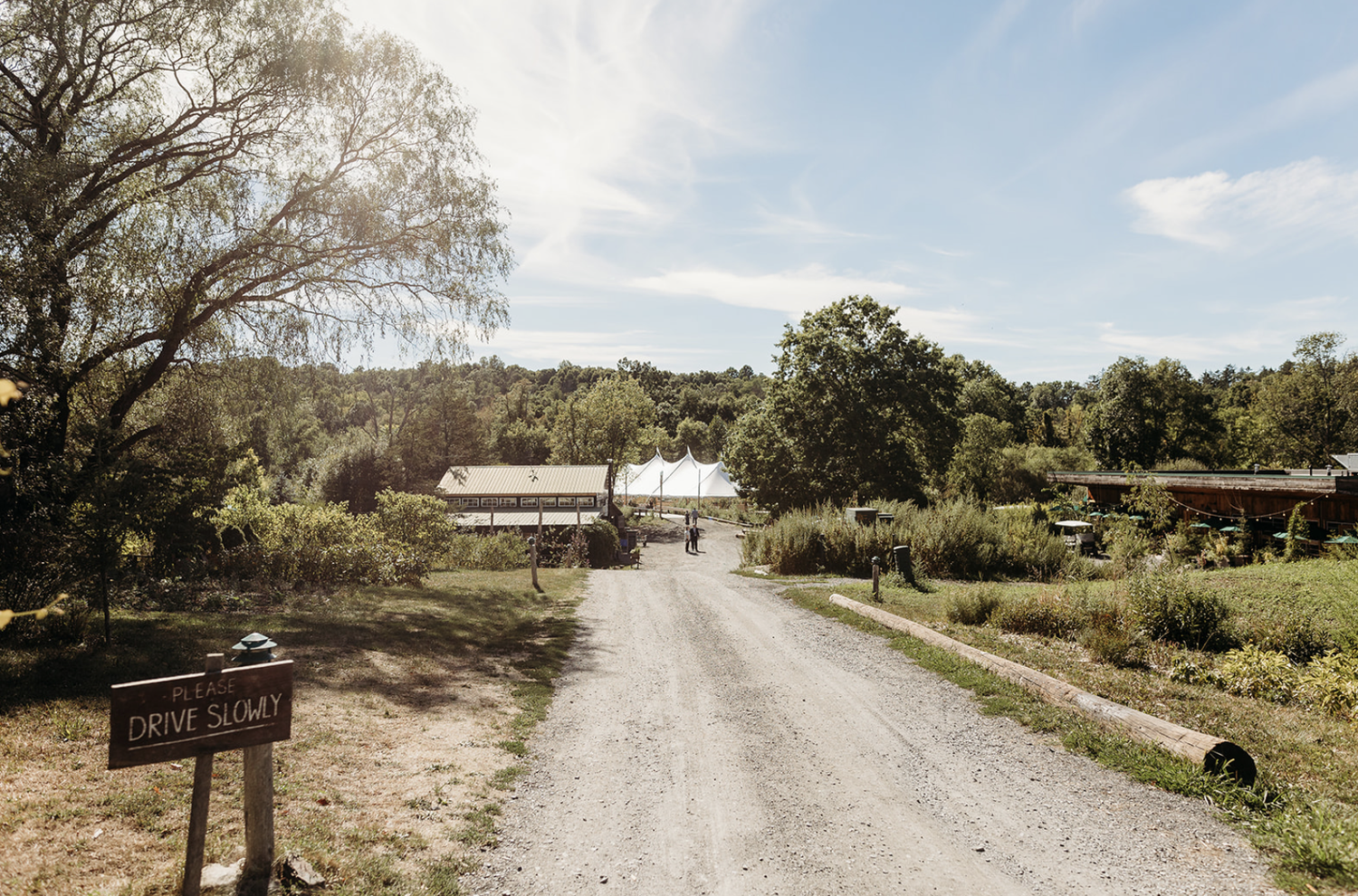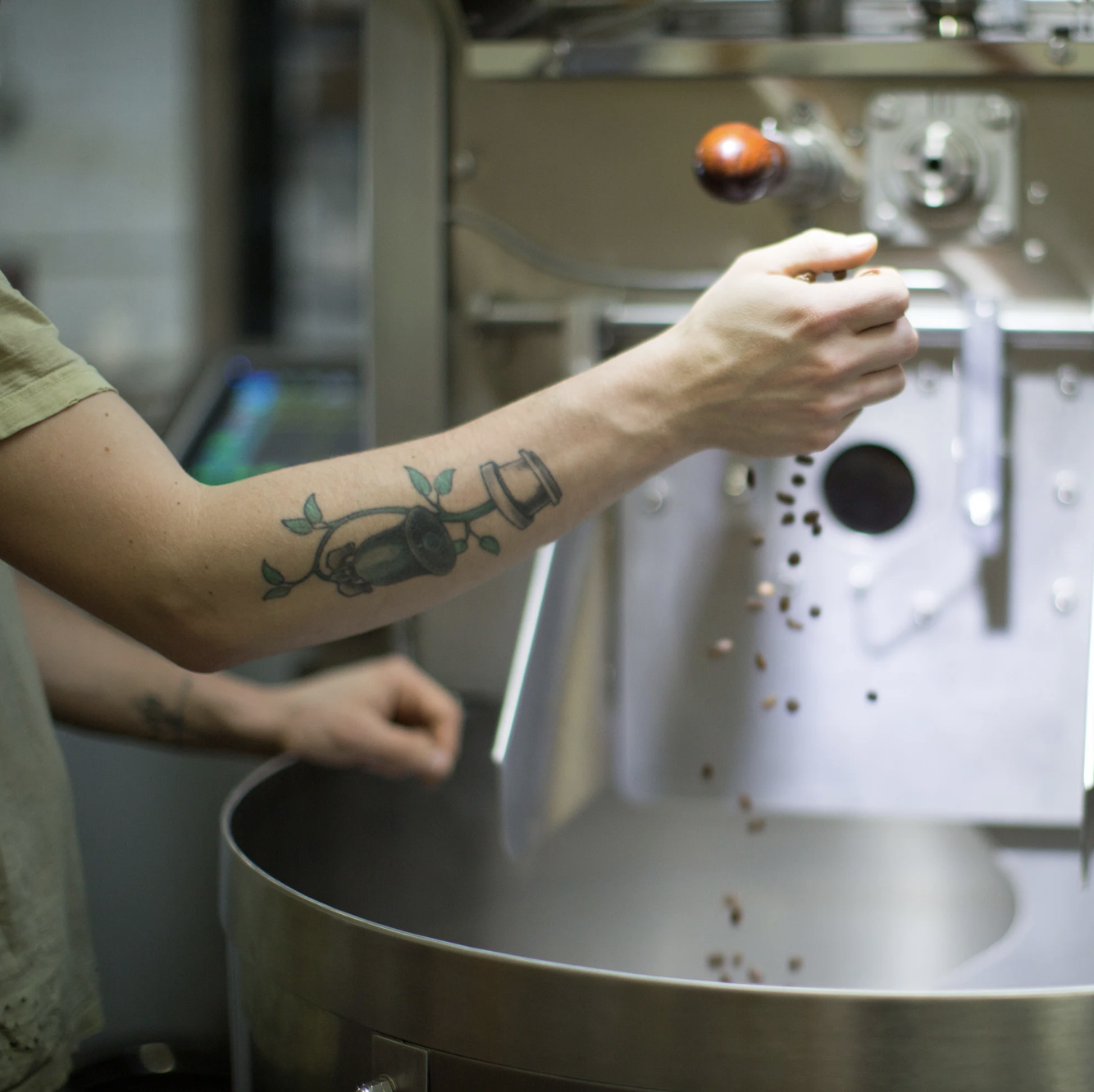Keeping Up With The Joneses
In conversation with Austin Jones of Blooming Hill Farm
In the early 1980s, Guy Jones was seeking a career switch, so he left his law firm in Albany to start Blooming Hill Farm in the Hudson Valley. He bought a small piece of land and began to grow a wide variety of organic produce, which got him noticed by famous chefs like David Bouley and Tom Colicchio at the Union Square Greenmarket. In the four decades since, Guy and his family have expanded the farm to 100 acres and have extended their range of crops to include 200 types of fruits and vegetables, so chefs remain some of their best customers.
But in addition to selling produce at farmers markets and directly to restaurants, Blooming Hill Farm now also has their own on-site market, farm-to-table restaurant, and events operation. Guy’s son Austin Jones returned to the farm to develop this hospitality side of the business in 2014, after earning an English degree at Cornell University and working in New York City restaurants like Marlow & Sons and Lupa. He’s created a beautiful way for visitors to experience the farm, whether it’s by grocery shopping, eating dinner, or attending a wedding.
Here, Austin shares more about the evolution of Blooming Hill Farm, as well as his hopes for the future of the family business.

Austin, Guy, Travis, and Skyler Jones. Photography courtesy of Blooming Hill Farm
Mast Journal: When your dad first started Blooming Hill Farm, what was he growing?
Austin Jones: It was a wide variety, like it is today. He was growing to sell at farmer's markets, so he wanted to have a pretty broad offering for that. He didn't really specialize in one thing. Now, there's definitely a lot of different types of greens. We have salad greens, cooking greens, kale, mustard, chicory and different types of lettuces. We do a lot of different types of herbs, root vegetables, carrots, radishes, beets, potatoes. We do some alliums, so onions and garlic. It's definitely pretty diverse because it was always grown to be sold at markets and then also direct to restaurants. We never really went through any of the distributors and because of that we needed to always have a wide variety.
MJ: That makes sense! And it sounds like more fun to have variety. In recent weeks, Mast Market has carried your carrots, celery, fennel, garlic, and banana fingerling potatoes.
AJ: Oh yeah, we grow fennel and celery in the summer. We do a lot of the nightshades, so peppers, tomatoes, eggplant. Twenty five years ago, my dad was growing unique varieties that maybe wouldn't be found in the supermarket, like heirloom varieties of tomatoes and things like that. They're more common now, but weren't as common back then.
MJ: No wonder your dad made friends with so many chefs! Did you grow up on the farm?
AJ: Yeah. I have two brothers and we all grew up on the farm property and grew up working for my dad. We all went away at different times to do different things, but now we're all back and involved in the business.
MJ: That’s awesome. Did you always know you would come back?
AJ: I don't think it was something I planned on when I was a teenager. I didn’t think that I would end up doing it, but after school, I lived in New York City for a while and the first jobs I had were all restaurant jobs. The connections I had through my dad were restaurant people and that's how I got back into the world of food. So through that, I ended up back at the farm years later.
MJ: What did you study in school?
AJ: I did something totally unrelated. I was doing English and writing. I thought I wanted to do something creative, but I didn't end up doing that.
MJ: When you were working in restaurants, were you cooking or in front-of-house positions?
AJ: I did both. I worked front-of-house and I worked at a few places in the kitchen.
MJ: And at what point did you realize you wanted to return to the farm?
AJ: When I was still living in the city, me and a few of the people I worked with in New York, we started doing some events at the farm. It was sort of intermittent at first. We did a few things a year and then I just realized that it could be potentially a bigger part of the farm business, that I could use that to help the overall family business and that's what made me move back.
MJ: What do you like about the hospitality side of the business?
AJ: It's cool to showcase what we grow in a different way. In the restaurant, but also at the weddings and events that we do. For people who come up to the farm, it's a good way to expose them to something they might not otherwise see if they just go to a farmer's market in the city. Seeing the land, where the food comes from, and then also getting to enjoy the finished product on the property is a cool thing.
MJ: It sounds dreamy! What does your average workday look like?
AJ: We're open at the restaurant Wednesday through Sunday, so on the days that we are open, I'm on the property mostly. Friday through Sunday, the market and store is open in conjunction with the restaurant. In the evenings is usually when we do our events and weddings, so I'll be there for a lot of those. It’s definitely our busiest time of the year right now, going from late summer into fall.

Austin Jones, Blooming Hill Farm
MJ: Totally. Can you tell us about the menu at the restaurant?
AJ: It's farm-to-table, but also has an Italian influence. We do a lot of pastas. We have a wood fired pizza oven, so we do wood fired pizzas. We try to utilize a lot of stuff from the farm itself, so a lot of different greens and herbs. On the menu right now, we have different root vegetables, winter squash we're starting to use. We still have some of the summer stuff, so we still have some tomatoes, eggplant, the last of the sweet corn. We try to center the menu around stuff from the farm and then the products that we don't get from the farm, we utilize other local, high quality purveyors for all that stuff.
MJ: That sounds delicious. What do you like about working on weddings and other events?
AJ: When we started doing weddings, I was doing a lot of the work myself. I was booking a lot of the events and I was involved with most of the planning. Now, we actually have a few people in-house who do most of our booking and planning and managing for the events. We've grown the team as that part of the business has grown, which is cool. It's gone from maybe five or six weddings a year to now about 60 a year.
MJ: That’s a lot of weddings! Is the event catering similar to the food you serve at the restaurant?
AJ: It's similar. It's a seasonal menu that changes throughout the year. It's usually split into two parts. We have a cocktail hour menu with different appetizers and hors d'oeuvres, and then a dinner menu that will be more of a sit-down menu that we serve. We definitely try to utilize stuff from the farm along with other local products. We do a lot of family-style food. That's pretty popular with the groups that book with us. It just goes with the vibe of the venue.

MJ: And you offer a floral service, too?
AJ: Yes, we have someone who works at the farm who does decorations and flowers for a lot of the events that we do. It's an add-on service for weddings, but a lot of groups choose to do that.
MJ: Are the flowers grown on the farm?
AJ: We try to use a lot of stuff that we grow and wild stuff from the property, but then depending on what the group wants, we will supplement that with stuff that we buy.
MJ: Cool! What do you sell at the market, besides produce, of course?
AJ: We have some canned and preserved products that we make from things from the farm, like pickled vegetables, tomato sauce, jams. We grow a lot of different types of peppers, so my brother makes hot sauces. We also sell some other local goods that we don't produce. We have eggs from another local farm and we have honey from someone nearby and we have bread from a local bakery to make it more like a grocery store experience for people.
MJ: Amazing! What are you most excited about for fall and winter?
AJ: When we don't have weddings and events, the restaurant's going to be open on the weekend evenings. That'll be good for getting people in who haven't been able to experience it before. We get a lot of people who come up on the weekends during the summer and they can't join us at the restaurant. We're also going to do some smaller ticketed events and dinners with outside guest chefs or people from wineries and things like that.
In terms of the produce, we try to store everything we harvest in the fall, like all the root vegetables and squash, so we have stuff to sell throughout the winter. We also grow in greenhouses in the winter time, so we have some greens and herbs. It's definitely much more limited, but we do stay open year-round. We encourage people to come up and visit us. Eat at the restaurant and check out the wedding venue. We're still booking for next year. We still have some openings for 2024 and we're starting to book for 2025.
MJ: What do you envision for the future of the farm? Especially the hospitality side of the business?
AJ: We want to keep growing the food, restaurant, events side of things. We've recently been presented with the opportunity to possibly acquire some more land, so that might be something we're considering in the future, which would allow us to expand. We definitely want to keep things going in the direction that we're going, as we move into the second generation with me and my brothers. And we'll probably, over the next few years, focus more on the on-site produce retail, potentially selling less off the property and utilizing what we grow more in the restaurant and with the events. We want to do most of our business on the farm property itself.
MJ: Definitely. If you don’t have to leave, why would you?
AJ: That's the idea. My dad always had a saying about that. He said, ‘If you can make a living in your driveway, then you want to do that.’
More from The Journal

In conversation with Aishwarya Iyer, founder of Brightland. She shares her thoughtful, delicious, and beautiful approach to creating a next generation food company.
Read more
In conversation with Sey Coffee’s Jaime Hodgkin. Jaime shares Sey’s origin story, its guiding principles, and what he loves about working in coffee.
Read more